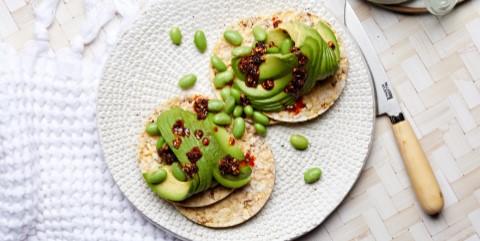Reduce Your Added Sugars to Support Gut Health

You may not be aware that every time you eat and drink you are influencing the health of your gut. The amount of new food and beverage products on the market is always growing. These products are formulated to taste as delicious as possible to make you want to buy more. One way they do this is by adding added sugar. The number of products with high levels of added sugar is growing and the health effects are more than simply an increase in your waistline and blood sugar levels. Added sugar can negatively impact the health of your gut microbiome.
High blood sugar and overconsumption of added sugars can have a negative effect on your gut barrier. Excess sugar can reduce the ability of your gut barrier to properly transport and stop molecules between your gut barrier. As a result, this negatively effects your gut microbiome and the ability of your immune system to function optimally.
The World Health Organization recommends no more than 10% of your daily intake should be from added or ‘free’ sugars and preferably no more than 5% of your total energy for optimal health and wellbeing.
When doing your weekly grocery shop some strategies to help reduce the amount of added sugar in your cupboard can be:
- Select mostly whole foods like vegetables, fruits, lean meats and alternatives, whole grains and whole grain containing foods like Corn Thins slices.
- When selecting products with a nutrition panel compare like-products and aim to select products with less than ten grams of added sugar per one hundred grams and no more fifteen grams of added sugar per one hundred grams. The amount of added sugar per one hundred grams can be found below the total carbohydrate amount row.
Take home message: For a healthy body you need a healthy gut microbiome. One way you can promote the health of your gut is by selecting foods which have no or are low in added sugar. This will help you to not only maintain a healthy body weight and stable blood sugar levels but keep your gut microbiome healthy.
Reference:
- Djésia Arnone, Caroline Chabot, Anne-Charlotte Heba, Tunay Kökten, Bénédicte Caron, Franck Hansmannel, Natacha Dreumont, Ashwin N. Ananthakrishnan, Didier Quilliot, Laurent Peyrin-Biroulet, Sugars and Gastrointestinal Health, Clinical Gastroenterology and Hepatology. 202